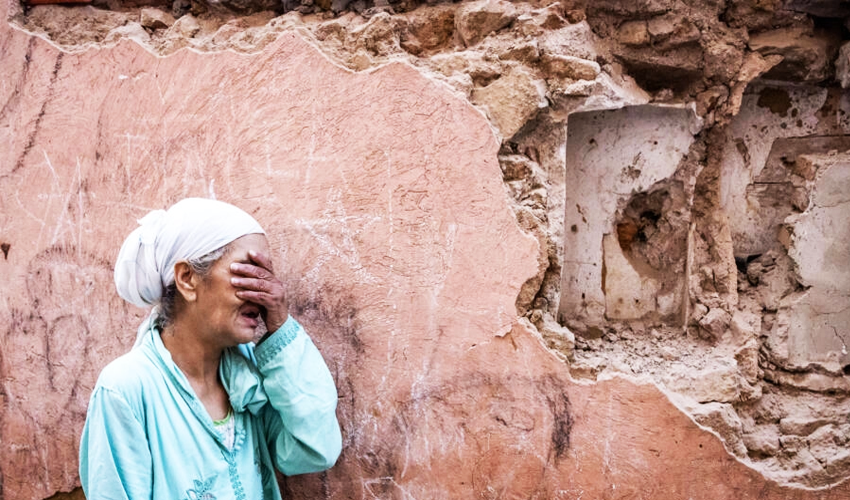A somber pall of grief hangs over Morocco as the nation mourns the devastating earthquake that has claimed the lives of more than 2,000 people, with rescue teams working tirelessly to locate survivors trapped beneath the ruins of obliterated villages.
This catastrophic event, marked as the strongest-ever earthquake to strike the country, has left at least 2,012 individuals dead and over 2,059 injured, many of whom are in critical condition, according to the most recent official statistics.
Remote villages bear brunt
On Friday, a powerful 6.8-magnitude earthquake struck approximately 72 kilometers (45 miles) southwest of the beloved tourist destination of Marrakesh, obliterating entire villages nestled in the rural hinterlands. Lahcen, a resident of the mountain village of Moulay Brahim, tragically lost his wife and four children.
While rescue teams managed to recover the bodies of his three daughters from the ruins of their once-peaceful home, they have not yet located the remains of his wife and son. Overwhelmed by grief, Lahcen lamented, "I can't do anything about it now, I just want to get away from the world and mourn."
Nation united in grief
Troops and emergency services have been mobilized in a race against time to reach remote mountainous villages where survivors may still be trapped. Al-Haouz province, the earthquake's epicenter, bore the brunt of the devastation, with a staggering death toll of 1,293, followed by the province of Taroudant with 452 lives lost.
International aid and solidarity
The heart-wrenching scenes of grief and loss have become all too familiar in the wake of this calamity. Bouchra, another resident of the isolated Moulay Brahim village, wiped away her tears with her scarf as she observed men tirelessly digging graves to lay the victims to rest. She spoke with a heavy heart, saying, "My cousin's grandchildren are dead.
I saw the devastation of the earthquake live, and I'm still shaking. It's like a ball of fire that has swallowed up everything in its path." She added, "Everyone here has lost family, whether in our village or elsewhere in the region."
In response to the disaster, authorities have declared three days of national mourning. Several countries, including Israel, France, Spain, Italy, and the United States, have offered their assistance. Even neighboring Algeria, which has had strained relations with Morocco, extended a helping hand by reopening its airspace to facilitate the transportation of humanitarian aid and the injured.
A Long road to recovery
The Red Cross has cautioned that the path to recovery will be long and arduous. Hossam Elsharkawi, the organization's Middle East and North Africa director, emphasized, "It won't be a matter of a week or two... We are counting on a response that will take months, if not years."
Tales of tragedy from shattered communities
One of the most heart-wrenching stories comes from the village of Tafeghaghte, located 60 kilometers southwest of Marrakesh, which was nearly entirely obliterated by the quake. Seventy-two-year-old Omar Benhanna shared his heartache, "Three of my grandchildren and their mother are dead.
They're still under the debris. It wasn't so long ago that we were playing together." The community came together to bury around 70 victims in a nearby cemetery, with the funeral rites punctuated by cries and screams.
Nation reeling from aftermath
As night fell, television screens across the nation broadcast chilling aerial images of entire villages reduced to rubble in the Al-Haouz region. The Moroccan interior ministry assured that public authorities remain fully engaged in expediting rescue operations and evacuating the injured.
This heart-wrenching earthquake stands as the deadliest in Morocco since the 1960 Agadir quake, which claimed the lives of nearly 15,000 people, accounting for a third of the city's population. Morocco now faces the arduous task of rebuilding shattered lives and communities in the wake of this tragic disaster.



























